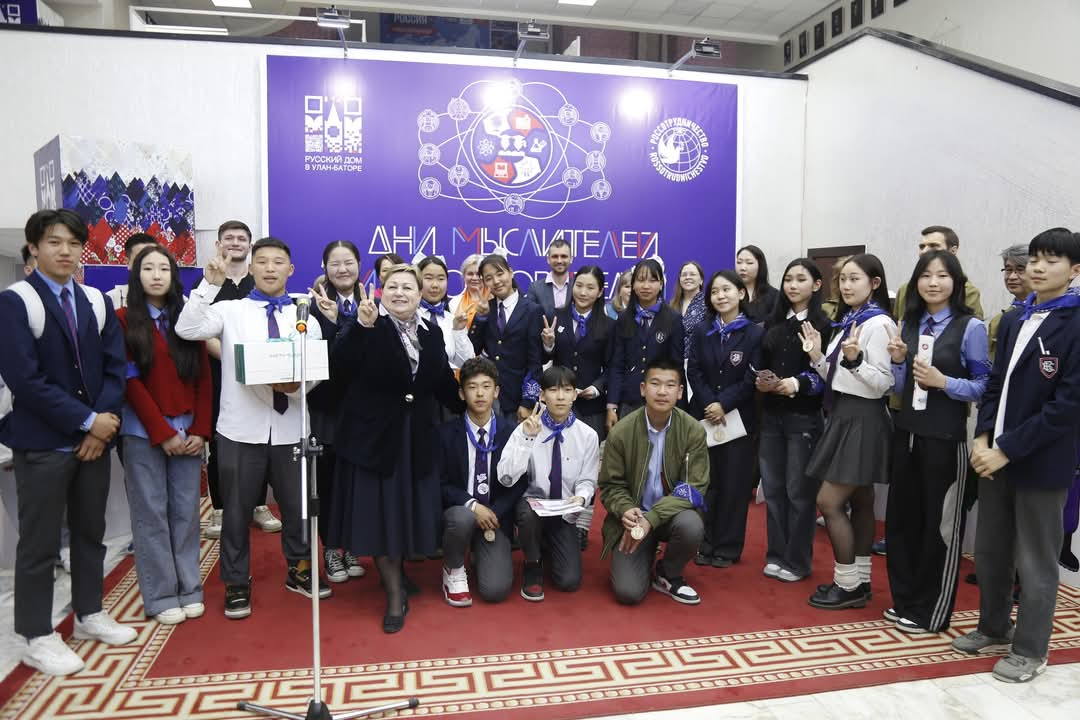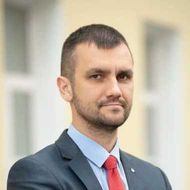Interactive Workshops, Thematic Quizzes, and New Partnerships: HSE Delegation Visits Mongolia

Representatives of HSE University visited the Mongolian capital, Ulaanbaatar. The visit focused on developing cooperation in the fields of education and science, as well as introducing Mongolian school pupils and students to the educational opportunities available at one of Russia’s leading universities.
As part of their trip, HSE representatives visited four of Mongolia’s top universities: the Mongolian National University of Arts and Culture (MNUAC), the Mongolian University of Science and Technology (MUST), the National University of Mongolia (NUM), and the University of Finance and Economics (UFE).
Each university hosted HSE presentations showcasing educational opportunities for international students, including master’s programmes taught in English. Students took part in quizzes and received commemorative gifts from HSE. The members of the Russian delegation had talks with university leadership and discussed prospects for academic and scientific collaboration, as well as the implementation of joint educational initiatives, including double degree programmes.
The visit included meetings with school pupils. HSE representatives visited Russian–Mongolian Secondary School No. 3 and the Ulaanbaatar branch of the Plekhanov Russian University of Economics. Pupils received information about university admission opportunities, took part in interactive workshops and themed quizzes, and also participated in the MOM Junior Olympiad. More than 230 pupils competed in intellectual contests covering a range of subjects, from English language and literature to mathematics and biology.
Additionally, the HSE delegation and school administrations discussed hosting the main MOM Olympiad in Mongolia in November 2025—a potentially significant step in expanding academic cooperation.
A key highlight of the visit was HSE’s participation in the educational event ‘Days of Thinkers and Inspirers,’ organised by the Russian House in Ulaanbaatar. Over 300 pupils—from both Russian-language and Mongolian-language schools—attended educational and creative sessions, learned more about studying in Russia, and took part in workshops, competitions, and quizzes.

Alexander Deev
‘Despite the tight schedule, the trip to Ulaanbaatar turned out to be both eventful and productive,’ said Alexander Deev, Director of International Talent Development. ‘Over the course of just a few days, we managed to organise a wide range of activities, establish new partnerships, and once again witness the talent and motivation of Mongolian school pupils and students. We are confident that this will not be our last visit to this wonderful country. More meetings, olympiads, and successful HSE admissions stories lie ahead.’
One of the most heart-warming moments of the visit was a meeting with HSE alumni currently living in Mongolia. More than ten graduates gathered to share memories of their student years and speak about their professional journeys. Such meetings contribute to the creation of a strong and active alumni community abroad.
Alexander Deev
See also:
Designing an Accurate Reading Skills Test: Why Parallel Texts are Important in Dyslexia Diagnosis
Researchers from the HSE Centre for Language and Brain have developed a tool for accurately assessing reading skills in adults with reading impairments. It can be used, for instance, before and after sessions with a language therapist. The tool includes two texts that differ in content but are equal in complexity: participants were observed to read them at the same speed, make a similar number of errors, and understand the content to the same degree. Such parallel texts will enable more accurate diagnosis of dyslexia and better monitoring of the effectiveness of interventions aimed at addressing it. The paper has been published in Educational Studies.
Intellectual Capital in the Face of Shocks: Russia and Iran Explore Internationalisation
In today's issue of Schola, Mariya Molodchik, Senior Research Fellow at the International Laboratory of Intangible-Driven Economy and Professor at the School of Economics and Finance at HSE University’s Campus in Perm, discusses a joint project with Iran University of Science and Technology, titled 'Internationalization of Companies from Developing Countries: The Role of Intellectual Resources in Response to Exogenous Shocks.'
HSE Researchers Introduce Novel Symmetry-Aware Neural Network Architecture
Researchers at the HSE Laboratory for Geometric Algebra and Applications have developed a new neural network architecture that can accelerate and streamline data analysis in physics, biology, and engineering. The scientists presented their solution on July 16 in Vancouver at ICML 2025, one of the world's leading conferences on machine learning. Both the paper and the source code are publicly available.
Students from HSE and Other Universities Carry Out Research Expedition at New Chersonesos
As part of the Rediscovering Russia student expedition programme, HSE University organised a research trip under the framework of the School for Young Humanities Scholars to the New Chersonesos museum and church complex in Sevastopol. The results of this expedition will form the basis for proposals on educational projects aimed at shaping young people’s historical memory of the role of Chersonesos, Crimea, and the Byzantine legacy in the history of Russian culture and statehood.
HSE Researchers Determine Frequency of Genetic Mutations in People with Pulmonary Hypertension
For the first time in Russia, a team of scientists and clinicians has conducted a large-scale genetic study of patients with pulmonary arterial hypertension. The team, which included researchers from the International Laboratory of Bioinformatics at the HSE Faculty of Computer Science, analysed the genomes of over a hundred patients and found that approximately one in ten carried pathogenic mutations in the BMPR2 gene, which is responsible for vascular growth. Three of these mutations were described for the first time. The study has been published in Respiratory Research.
First Caucasus School on Experimental Research and Cognitive Sciences Takes Places in Adygea
On September 17–20, 2025, the First Caucasus School on Experimental Research and Cognitive Sciences took place at the Gornaya Legenda venue of Adyghe State University (ASU). The event was organised by the ASU Experimental Linguistics Laboratory, the HSE Centre for Language and Brain, and the HSE Centre for Sociocultural and Ethnolinguistic Studies. The school brought together over 50 participants—students, doctoral candidates, and early-career researchers from across Russia, along with lecturers and speakers from France, Serbia, China, Turkey, Kazakhstan, and Uzbekistan.
HSE Scientists Reveal How Disrupted Brain Connectivity Affects Cognitive and Social Behaviour in Children with Autism
An international team of scientists, including researchers from the HSE Centre for Language and Brain, has for the first time studied the connectivity between the brain's sensorimotor and cognitive control networks in children with autism. Using fMRI data, the researchers found that connections within the cognitive control network (responsible for attention and inhibitory control) are weakened, while connections between this network and the sensorimotor network (responsible for movement and sensory processing) are, by contrast, excessively strong. These features manifest as difficulties in social interaction and behavioural regulation in children. The study has been published in Brain Imaging and Behavior.
Scientists Develop New Method to Detect Motor Disorders Using 3D Objects
Researchers at HSE University have developed a new methodological approach to studying motor planning and execution. By using 3D-printed objects and an infrared tracking system, they demonstrated that the brain initiates the planning process even before movement begins. This approach may eventually aid in the assessment and treatment of patients with neurodegenerative diseases such as Parkinson’s. The paper has been published in Frontiers in Human Neuroscience.
Global AI Trends Discussed at International Foresight Workshop at HSE University
At an international foresight workshop on artificial intelligence held at HSE University, Russian and foreign scholars discussed the trends and challenges arising from the rapid development of AI.
'Biotech Is Booming Worldwide'
For more than five years, the International Laboratory of Bioinformatics at the HSE Faculty of Computer Science has been advancing cutting-edge research. During this time, its scientists have achieved major breakthroughs, including the development of CARDIOLIFE—a unique genetic test unmatched worldwide that predicts the likelihood of cardiovascular disease. With the active participation of HSE students, including doctoral students, the team is also working on a new generation of medicines. In this interview with the HSE News Service, Laboratory Head Maria Poptsova shares insights into their work.


